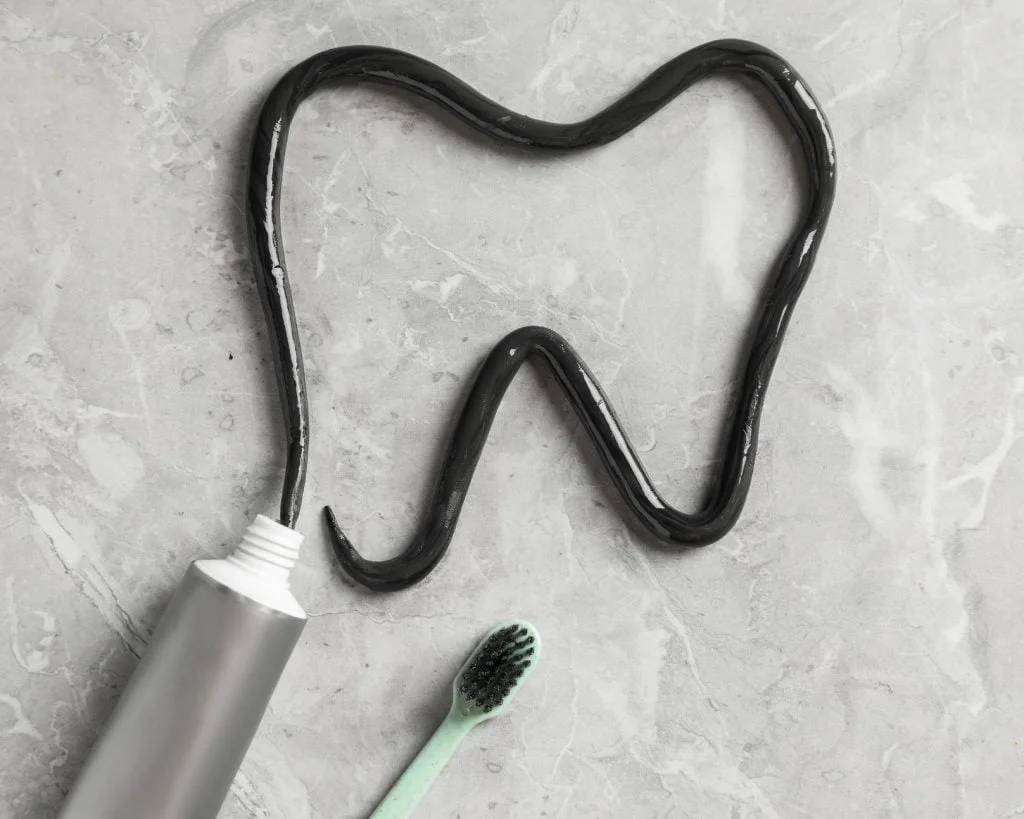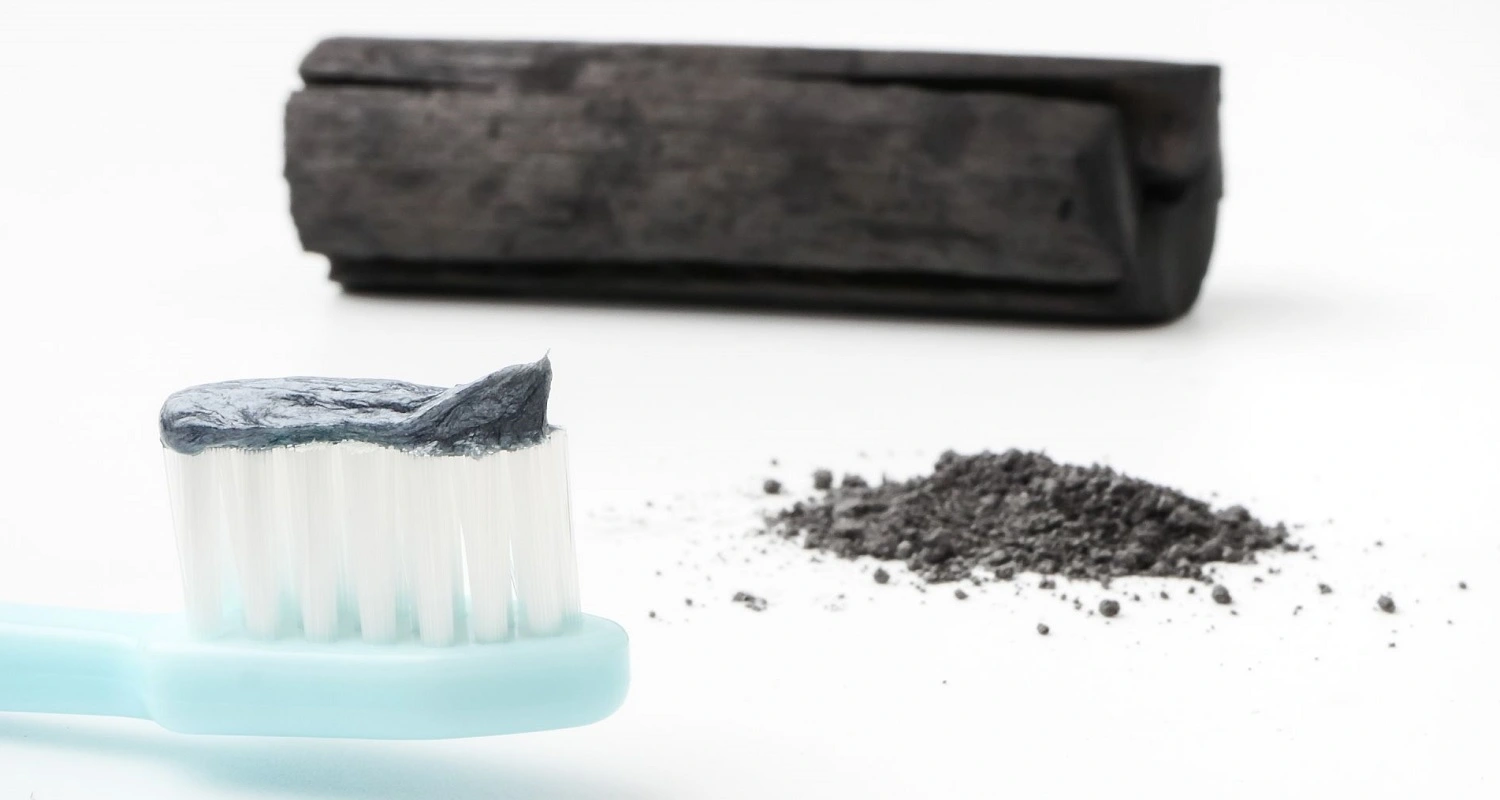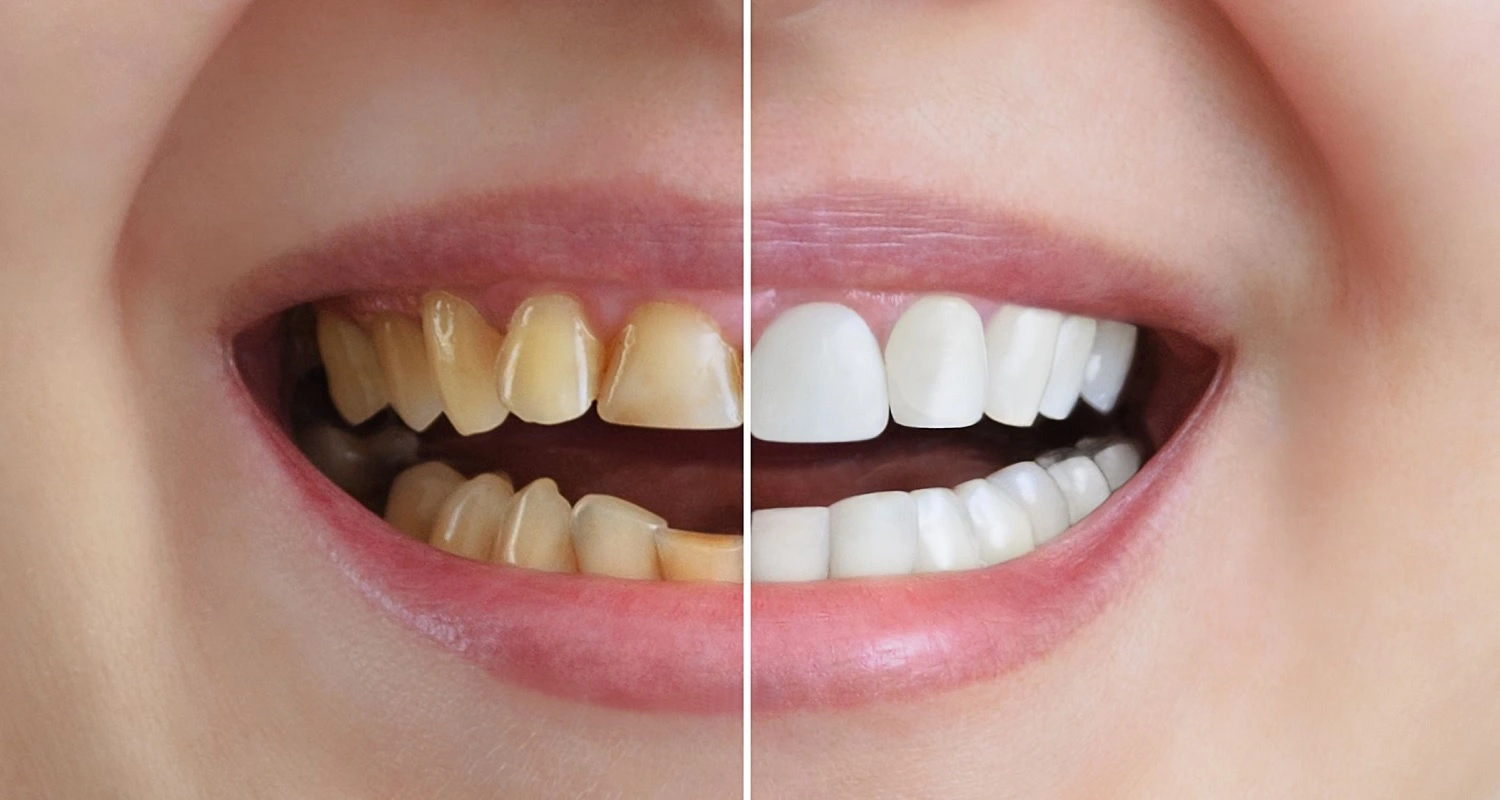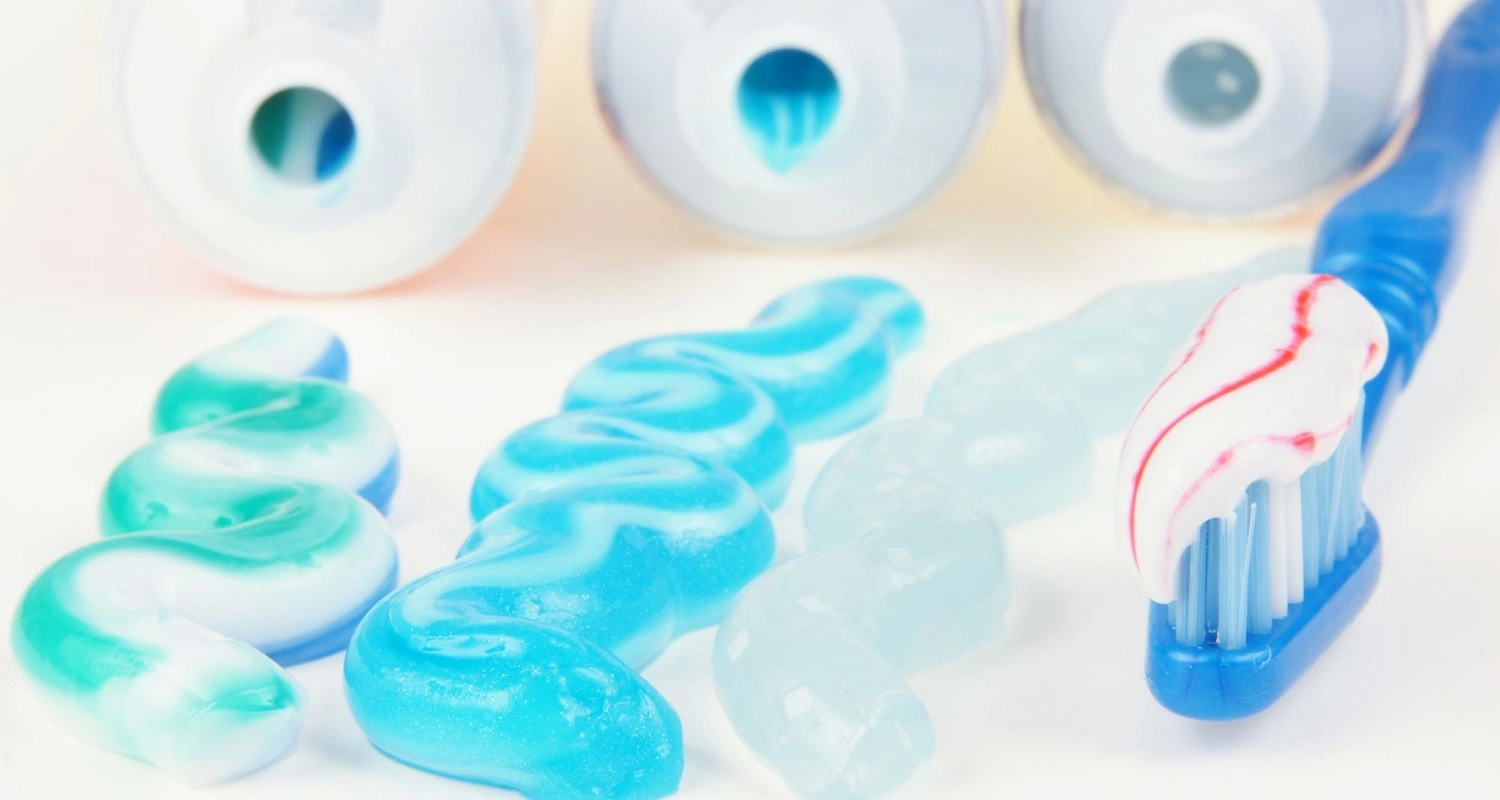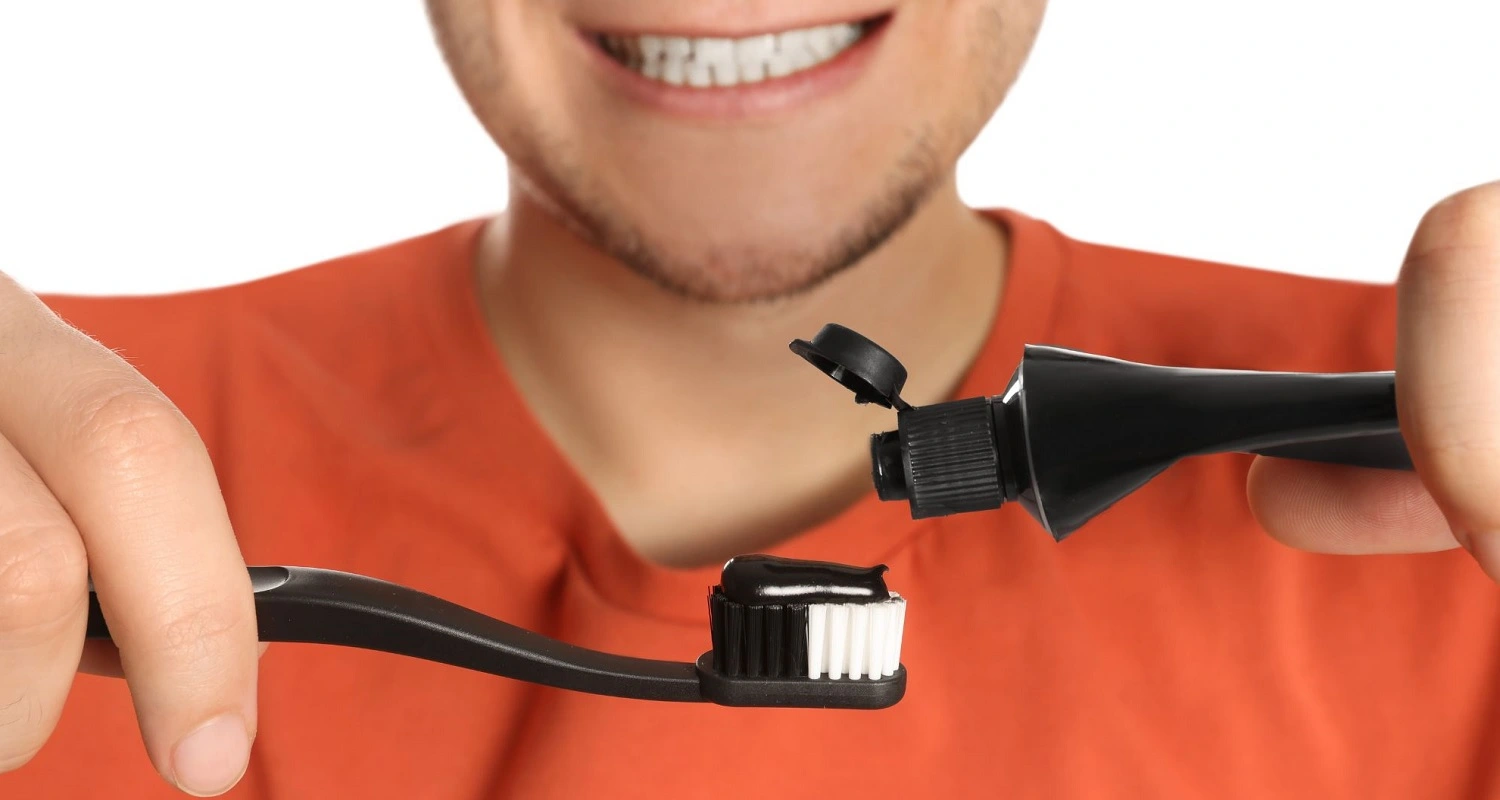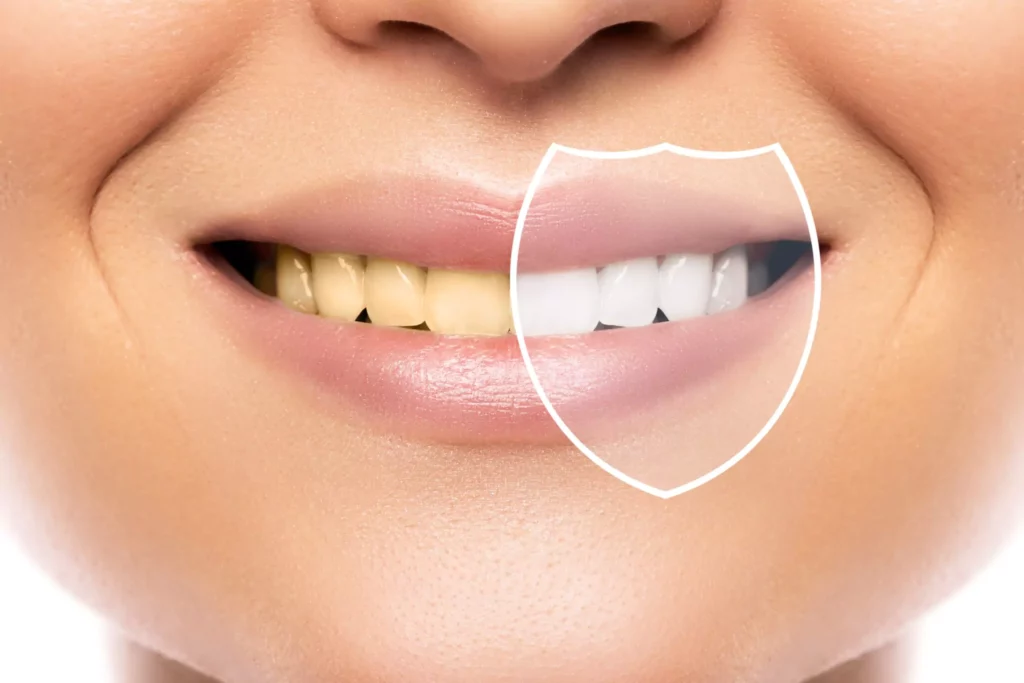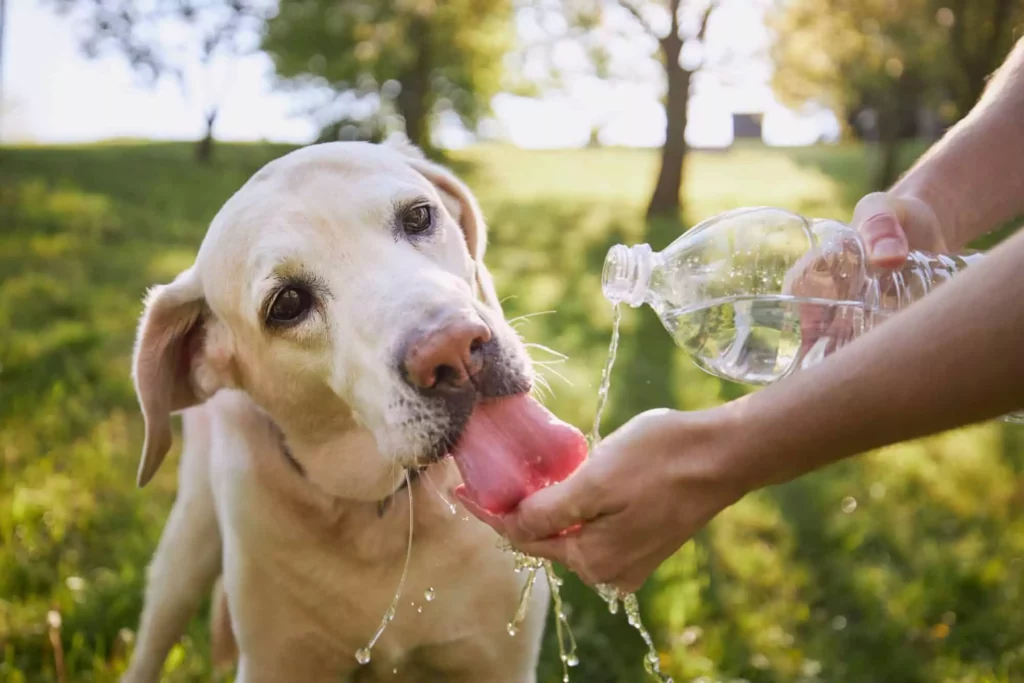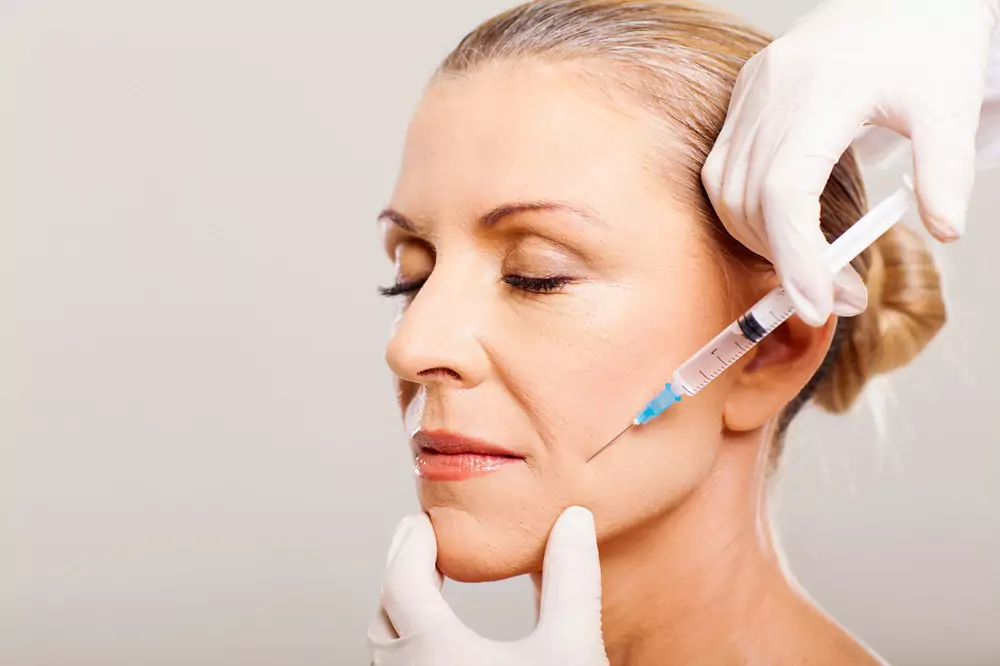Charcoal toothpaste is very cool; it makes your teeth black during brushing and supposedly white after rinsing. So, what’s not to like?
Activated charcoal it’s a trending ingredient not only for oral care but also skincare, claiming to suck out all impurities. In oral care, charcoal toothpaste has turned into an increasing trend due to the appeal of a natural teeth whitening solution and the affordable price. But, how does activated charcoal toothpaste work and how does it fit into an effective oral care routine?
What is Charcoal Toothpaste?
It contains activated charcoal as the main ingredient. Charcoal has been used in toothpaste since ancient Roman and Greek times. However, the charcoal used in toothpaste is not regular everyday charcoal. It goes through a process during which the charcoal is exposed to a gas to make it more porous, enhancing its ability to attract toxins or stains.
Understanding Activated Charcoal
If we zoom in on activated charcoal, we would notice that the surface is very sponge-like, with lots of holes, giving it a large surface area. It’s estimated that 1 gram of activated charcoal has a surface area of 3,000 square meters, the same as 3 Olympic-size swimming pools, 7 basketball courts, or 230 car parking spaces. Its huge surface area is great for soaking up different substances.
In medicine, activated charcoal is given to patients who got poisoned because it sucks all the toxins. The same analogy can be applied to oral health. Activated charcoal in toothpaste can attract stains and pigments on teeth, as well as bacteria and toxins, resulting in whiter teeth and fresh breath.
Top 5 Benefits of Using Charcoal Toothpaste
1. Teeth whitening properties: Activated charcoal as whitening toothpaste may help remove pigmentations on the surface of the teeth, resulting in a brighter smile over time.
2. Fights bad breath: Charcoal toothpaste can absorb odor-causing bacteria, helping to freshen breath and improve gingival health.
3. Natural teeth whitening solution: Charcoal toothpaste formulations contain natural ingredients that are free from harsh chemicals, like peroxide, making them a popular choice among those seeking more natural oral care options.
4. Gently exfoliates: It provides an abrasive action, helping to physically remove stains, plaque, and tartar buildup from the teeth and gums.
5. Detoxification: The porous nature of activated charcoal allows it to bind to toxins and impurities, potentially improving dental health.
Potential Risks and Drawbacks
The overuse of charcoal toothpaste is associated with potential risks that include:
1. Enamel wear off: Activated charcoal toothpaste can be abrasive and may wear down tooth enamel over time if used too often or too harshly.
2. Potential staining: Charcoal particles may accumulate in the cracks of dental work, such as fillings or crowns, between the teeth or in cracks, leading to potential staining or discoloration.
3. Lack of fluoride: Many charcoal toothpaste do not contain fluoride, essential for preventing tooth decay and mineralizing enamel. Evidence links increased tooth decay with this toothpaste.
4. Ineffectiveness: While some claim whitening benefits, there’s limited scientific evidence to support the efficacy of this toothpaste in whitening teeth.
How Does Charcoal Toothpaste Compare to Traditional Toothpaste?
Traditional toothpastes are widely recommended by dentists to improve oral health and prevent tooth decay. Comparing them with charcoal toothpaste, there are a couple of essential changes in their formulations.
● Traditional toothpaste is formulated with surfactants, humectants, preservatives, flavoring agents, and fluoride, which are the basis of each toothpaste. Depending on the type of toothpaste, some have abrasives or chemical agents for teeth whitening.
● Charcoal toothpaste is formulated with:
◦ Activated charcoal, which is the primary ingredient gives it a dark color.
◦ Humectants, flavoring agents, and preservatives give it flavor, texture, and prolonged shelf life.
Besides the key ingredient, it is worth mentioning that charcoal toothpastes usually lack fluoride; so it’s important to check the ingredient list if you are prone to tooth decay.
Natural Whitening: Myth or Reality?
Natural remedies are always at the top of my mind. People are more prone to finding “natural solutions” for common everyday problems, and teeth whitening is one of them. But, sometimes natural alternatives do more harm than good.
Some of the most common natural whitening options include acidic fruits like lemon, abrasive powders like charcoal or baking soda, and coconut oil pulling.
The fact is that lemon or apple cider vinegar in direct and prolonged contact with the teeth can damage the enamel and cause sensitivity. Scrubbing ingredients like baking soda and charcoal can wear enamel away and probably stain the teeth.
Is It Safe for Everyday Use?
It shouldn’t be used more than once a tooth because it can be very abrasive and discolor the teeth. Here’s how can you incorporate charcoal toothpaste into your oral care routine:
● Select a charcoal toothpaste containing the ADA Seal of Acceptance
● Add a pea-sized amount of toothpaste on a soft bristle toothbrush, using circular and gentle motions to distribute the toothpaste evenly.
● Thoroughly rinse with water
● Follow with your regular toothpaste, if your toothpaste doesn’t have fluoride.
We have a comprehensive guide about the safe usage of this charcoal toothpaste and learn some of the risks of using it.
Can Charcoal Toothpaste Damage Your Enamel?
Although enamel is the hardest structure in the body, activated charcoal can be very abrasive and cause enamel to wear off over time. To ensure that your charcoal toothpaste is safe to use, check for the ADA Seal of Acceptance. ADA has developed a scale, called the Relative Dentin Abrasivity: any toothpaste with RDA 250 or less, is safe to use.
Conclusion
In wrapping up the discussion on charcoal toothpaste, it’s evident that this product offers a novel and intriguing method for teeth whitening and oral detoxification, harking back to ancient practices with a modern twist.
The potential benefits, including stain removal, breath freshening, and the appeal of natural ingredients, make it a tempting choice for those seeking alternative oral care options. However, it’s crucial to weigh these advantages against the possible drawbacks, such as enamel wear, staining risks, and the lack of fluoride, which is essential for tooth health. Moderation and informed choice are key when integrating charcoal toothpaste into your oral hygiene regimen.
Opt for products recognized by dental associations and consider alternating with traditional toothpaste to ensure comprehensive dental care. While this toothpaste can be a cool addition to your bathroom shelf, maintaining a healthy smile should always prioritize safety and efficacy, blending the best of both traditional and natural oral care approaches.
Frequently Asked Questions
What makes charcoal toothpaste different from regular toothpaste?
Besides the typical black color, charcoal toothpastes are different due to their key ingredient, which is activated charcoal. These toothpastes offer a certain level of whitening and abrasiveness, which can make your smile appear brighter. However, many charcoal toothpastes do not contain fluoride compared to regular toothpastes.
How often should you use charcoal toothpaste?
There is no standard when it comes to the frequency of using charcoal toothpaste, but the general rule is to use it moderately and not daily.
Can charcoal toothpaste replace my regular toothpaste?
While charcoal toothpaste can be part of your oral care routine, it is not recommended to substitute for your regular toothpaste, because it can be too abrasive and may not protect your teeth against decay. Here’s a good oral health routine: alternate between using your regular fluoride toothpaste with charcoal toothpaste, and using the latter only 1-2 times a week.
What should I do if I experience sensitivity or discomfort after using charcoal toothpaste?
If you are experiencing sensitivity after using charcoal toothpaste, stop using it immediately and consult with your dentist. Your dentist may recommend switching to a milder toothpaste, using fluoride mouthwash, or desensitizing gel.
Share:
References
1. Healthline Media. (2021, March 17). Charcoal toothpaste for teeth whitening: Does it work?. Healthline. https://www.healthline.com/health/dental-and-oral-health/charcoal-toothpaste#safety
2. Akshima Sahi, BDS. (Jun, 2023). Charcoal Toothpaste: Benefits and Risks. News Medical Life Sciences. https://www.news-medical.net/health/Charcoal-Toothpaste-Benefits-and-Risks.aspx
3. Natural teeth whitening. American Dental Association. (n.d.). https://www.mouthhealthy.org/all-topics-a-z/natural-teeth-whitening
4. Toothpastes. American Dental Association. (2021, July 8). https://www.ada.org/resources/ada-library/oral-health-topics/toothpastes/
5. Wong, M. (2018, November 8). Activated charcoal in skincare: The science. Lab Muffin Beauty Science. https://labmuffin.com/fact-check-how-does-activated-charcoal-work-in-skincare/
-
Nayibe Cubillos M. [Author]
Pharmaceutical Chemestry |Pharmaceutical Process Management | Pharmaceutical Care | Pharmaceutical Services Audit | Pharmaceutical Services Process Consulting | Content Project Manager | SEO Knowledge | Content Writer | Leadership | Scrum Master
View all posts
A healthcare writer with a solid background in pharmaceutical chemistry and a thorough understanding of Colombian regulatory processes and comprehensive sector management, she has significant experience coordinating and leading multidisciplina...



